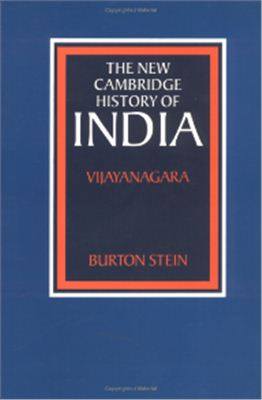Cambridge University Press, 1990. - 164 pp.
The Vijayanagara rajas ruled a substantial part of the southe peninsula of India for over three hundred years, beginning in the mid-fourteenth century. During this epoch the region was transformed from its medieval past toward a mode colonial future. Concentrating on the later sixteenth- and seventeenth-century history of Vijayanagara, this book details the patte of rule established in this important and long-lived Hindu kingdom that was followed by other, often smaller kingdoms of peninsular India until the onset of colonialism. Through an analysis of the politics, society, and economy of Vijayanagara, the author addresses the central question of the extent to which Vijayanagara, as a medieval Hindu kingdom, can be viewed as a prototype of the polities and societies confronted by the British in the late eighteenth century. The book thus presents an understanding and appreciation of one of the great medieval kingdoms of India as well as a more general assessment of the nature of the state, society, and culture on the eve of European colonial rule.
The Vijayanagara rajas ruled a substantial part of the southe peninsula of India for over three hundred years, beginning in the mid-fourteenth century. During this epoch the region was transformed from its medieval past toward a mode colonial future. Concentrating on the later sixteenth- and seventeenth-century history of Vijayanagara, this book details the patte of rule established in this important and long-lived Hindu kingdom that was followed by other, often smaller kingdoms of peninsular India until the onset of colonialism. Through an analysis of the politics, society, and economy of Vijayanagara, the author addresses the central question of the extent to which Vijayanagara, as a medieval Hindu kingdom, can be viewed as a prototype of the polities and societies confronted by the British in the late eighteenth century. The book thus presents an understanding and appreciation of one of the great medieval kingdoms of India as well as a more general assessment of the nature of the state, society, and culture on the eve of European colonial rule.

